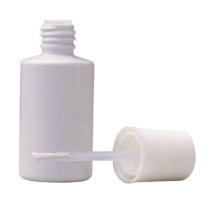Robot Writing
Welcome to the 21st Century where excess in all things is the norm. We have more of anything than in the history of man. The most salient example is when grandparents tell their grandchildren the difference in things when they were young and now. My great niece is 7 and she is a whiz on the computer. I fully expect she will write her life story any day now.
So for a minute, let me be your grandfather and do a little time traveling. When I was a kid, we had exactly two places in my hometown where you could get a hamburger and the price was ten cents. We have thousands of places these days to get a hamburger and the price has jumped as high as twelve dollars. Even one of our popular fast food places has what they call the “six dollar hamburger.”
This blog isn’t about hamburgers but it shows that the vast difference in a hamburger of yore and today has carried over to every strata of our society.
This blog is about WRITING. So what has happened in that field that might compare it to a hamburger? Let’s see, it would be just as well to start at the very beginning of mankind. We had some people even in those distant times who wanted to tell stories to others. The tools of a writer’s craft have constantly evolved through history, from oral storytelling, through quills and typewriters, to the modern computer.
When I took typing with Mrs. Evans at Okolona High School in my senior year, I thought I had entered a futuristic world. My parents couldn’t believe that I was learning to type on a blind keyboard (no letters visible) and I didn’t have to hunt and peck. I was kind of like a “little robot” one of my aunts said. The minute I made that A in Mrs. Evans’ class I knew I was on my way to authorhood. That’s when I wrote my play GOOD GRIEF— which I told about in the last blog. I could never have worked my way through three acts of dialogue if I had had to use a hunt and peck system of typing.
One big problem still existed in typing. If we made a mistake, we had to erase and retype over the mistake. Then some genius came up with little sheets of white paper. Upon their appearance on the scene, I had a sense that I was seeing the future and it was making my creative writing much easier to produce. At that time I was in Paris and writing those plays for the Paris English Theatre. I had advanced to using an Olivetti portable. It was cute and I could bang stuff out coming and going on that handy-dandy little machine coupled with those little white papers.
 Then toward the end of my stay in Paris, someone came up with a white liquid and I thought they had to be a genius from the future. Typing became even more simplified. All I needed was talent, that little Olivetti and a bottle of white out.
Then toward the end of my stay in Paris, someone came up with a white liquid and I thought they had to be a genius from the future. Typing became even more simplified. All I needed was talent, that little Olivetti and a bottle of white out.
Then I went to Hollywood and was greeted with the electric Smith-Corona and its cartridges for typing and correcting. I thought the art of typing had become sensational. Then a couple of years later, along came the computer with its word-processing program. I paid a fortune (nearly a thousand dollars) for my first word processor—a Kaypro. I was sure that was the end of the line as far as possible development of writing instruments for the writer. No longer did we have to erase or white out. If we had to change the name of a character or edit, we could push a button and the computer would do it effortlessly for us. Then someone invented spell check and it instantly cured me of one of my major writing problems. Later grammar check came along and became my own private syntax cop.
What else I thought? What could possibly be next? Believe it or not, welcome to the day of the Robot Writer. Nowadays everyone can be a writer if they have the price of a laptop or desk computer. Talent? Who needs it? People are writing their heads off these days. We have the internet and that coupled with the computer has thrown us into another world as far as the profession of writing goes.
There’s a lot to read and watch on the internet. In just SIXTY SECONDS, 278,000 Tweets are sent, 347 posts are published on Word Press, and 72 hours of footage are uploaded to YouTube.
On Facebook, you have 1 billion messages per 24 hours. If you think this is amazing, please pay attention—it’s only getting worse (like really, really bad. People not only tell you what they are eating for lunch but post cute and clever homilies about their being liked. Example: Before you judge me, make sure you’re perfect.)
 According to The Bowker Report (the people who issue ISBNS) over a million and a half books were published in the U.S. in 2014, which is more than triple the number of books published six years earlier. More than two thirds of these books are self-published, print-on-demand books, which is where most of the growth in recent years has taken place.
According to The Bowker Report (the people who issue ISBNS) over a million and a half books were published in the U.S. in 2014, which is more than triple the number of books published six years earlier. More than two thirds of these books are self-published, print-on-demand books, which is where most of the growth in recent years has taken place.
Book industry sales are declining, despite the explosion of books published. Book sales in the U.S. peaked in 2007 and have fallen every year since, according to the Association of American Publishers. Average book sales are shockingly small, and falling fast. Combine the explosion of books published with the declining total sales and you get shrinking sales of each new title. According to Nielsen BookScan – which tracks most bookstore, online, and other retail sales of books (including Amazon.com) – only 282 million books were sold last year in the U.S. The average U.S. nonfiction book is now selling fewer than 250 copies per year and fewer than 3,000 copies over its lifetime.
So what is happening? Everybody is a writer who wants to be one—even if you have no talent for it. Let’s say you don’t know how to make up plots, names of characters, story conflict or story line. No need to worry. Just go to Google and type in “writing software.” You’ll see there are dozens and dozens of programs to help you write your book, play, or screenplay. The top programs are WriteNow, WriteWay Pro, Scriveners, Dramatica Pro and dozens of others. They range in price from thirty dollars to a hundred and fifty. Order one and you’ll be on your way to becoming one of these new modern Robot Writers you see by the dozens at Starbuck’s.
Where is this all taking us in the field of creative writing? Who can predict? It just reminds me of that old funny saying that used to be pasted on office walls: Last week I couldn’t spell kat and this week I are a secretary.
I should have known years ago when they came out with those paint-by-number kits that one day there would be a write-by-number novel kit.
So whether you’re looking to be the next J.K. Rowling, Stephenie Meyer or John Grisham, just giggle over to Google and with a touch of a key, your Robotic future in writing awaits you.



